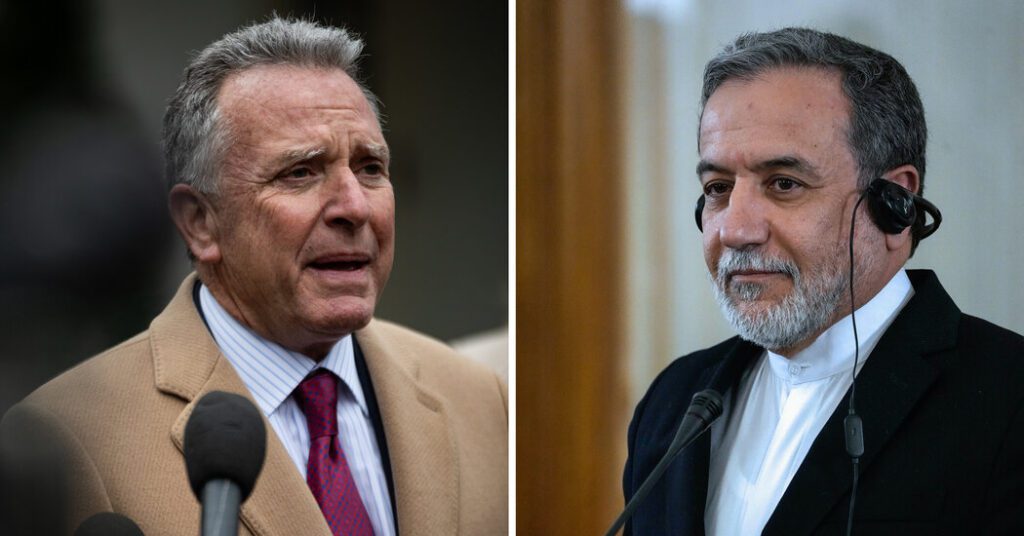U.S.-Iran Nuclear Talks: A New Diplomatic Effort
Initial Meeting Highlights
The recent discussions between the United States and Iran regarding Iran’s nuclear program marked a significant step towards potential diplomatic engagement. Both nations expressed a desire to avoid the escalation of conflict in the Middle East, indicating a serious commitment to explore workable solutions.
This meeting, held on Saturday, is the first of what may be ongoing talks, aiming to address the complexities surrounding Iran’s nuclear ambitions while considering regional security concerns.
The Urgency of the Current Talks
Unlike the 2015 nuclear deal, which sought to alleviate Iran’s economic sanctions, the current negotiations are underscored by heightened urgency. Diminished regional power from adversaries such as Israel and internal pressures has increased Iran’s need for economic relief and security. The stance of President Trump, who previously exited the 2015 agreement due to its perceived weaknesses, adds a layer of urgency, as he has hinted at potential military action against Iran should negotiations fail.
A Chance for Comprehensive Security
Iran’s Supreme Leader, Ayatollah Ali Khamenei, has signaled a willingness to negotiate, granting diplomatic personnel one last opportunity to secure a lasting agreement that aligns Iran’s nuclear activities with national security interests. Unlike previous rounds of discussions that involved multiple countries, this encounter is focused directly between the U.S. and Iran, with European nations, Russia, and China taking more passive roles.
Progress and Challenges Ahead
Both sides exhibited a readiness to engage meaningfully. As Ali Vaez from the International Crisis Group noted, the initial meetings have been constructive, allowing for a commitment to reconvene and align objectives. The preliminary goal has narrowed to preventing Iran from developing nuclear weapons rather than dismantling its entire nuclear program, which had been a previous contention point.
This shift in focus may facilitate negotiations surrounding specific aspects such as uranium enrichment levels and the extent of international inspections.
Trust Issues and Israeli Influence
The relationship between Iran and the U.S. remains fraught with distrust, particularly towards Trump. Nonetheless, Iran may perceive his administration as potentially more committed to maintaining any agreements reached, as opposed to previous administrations that struggled with Congressional oversight. While Israeli Prime Minister Benjamin Netanyahu remains an influential figure advocating for a stringent approach towards Iran, the dynamics between Trump and Netanyahu appeared complex during the announcement of the talks.
Paving the Way for Future Agreements
To build confidence, both sides may consider interim agreements to foster collaboration while deeper discussions unfold. Options on the table could involve Iran agreeing to halt uranium enrichment temporarily in exchange for some suspension of U.S. sanctions. These incremental steps could lay a foundation for a more substantial agreement over the coming years.
Still, time is of the essence; Iran’s negotiation leverage hinges on its nuclear capabilities, and any delays could diminish its position. As deadlines for previously suspended sanctions loom, both parties are aware of the urgency to make tangible progress to avoid a return to heightened economic sanctions.
Looking Ahead
The potential for success in these talks hinges on mutual benefits and genuine trust-building measures, which are currently lacking. With high stakes for both domestic and international audiences, ensuring a durable and reliable agreement will be essential. As analysts suggest, establishing clear guarantees could pave the way for a more stable Middle Eastern landscape.


